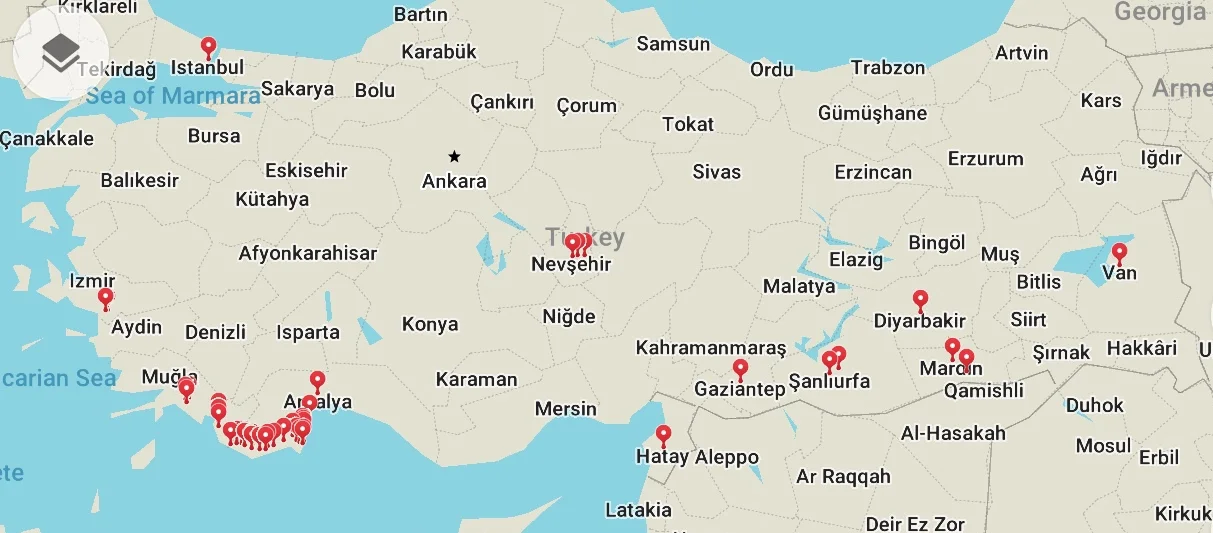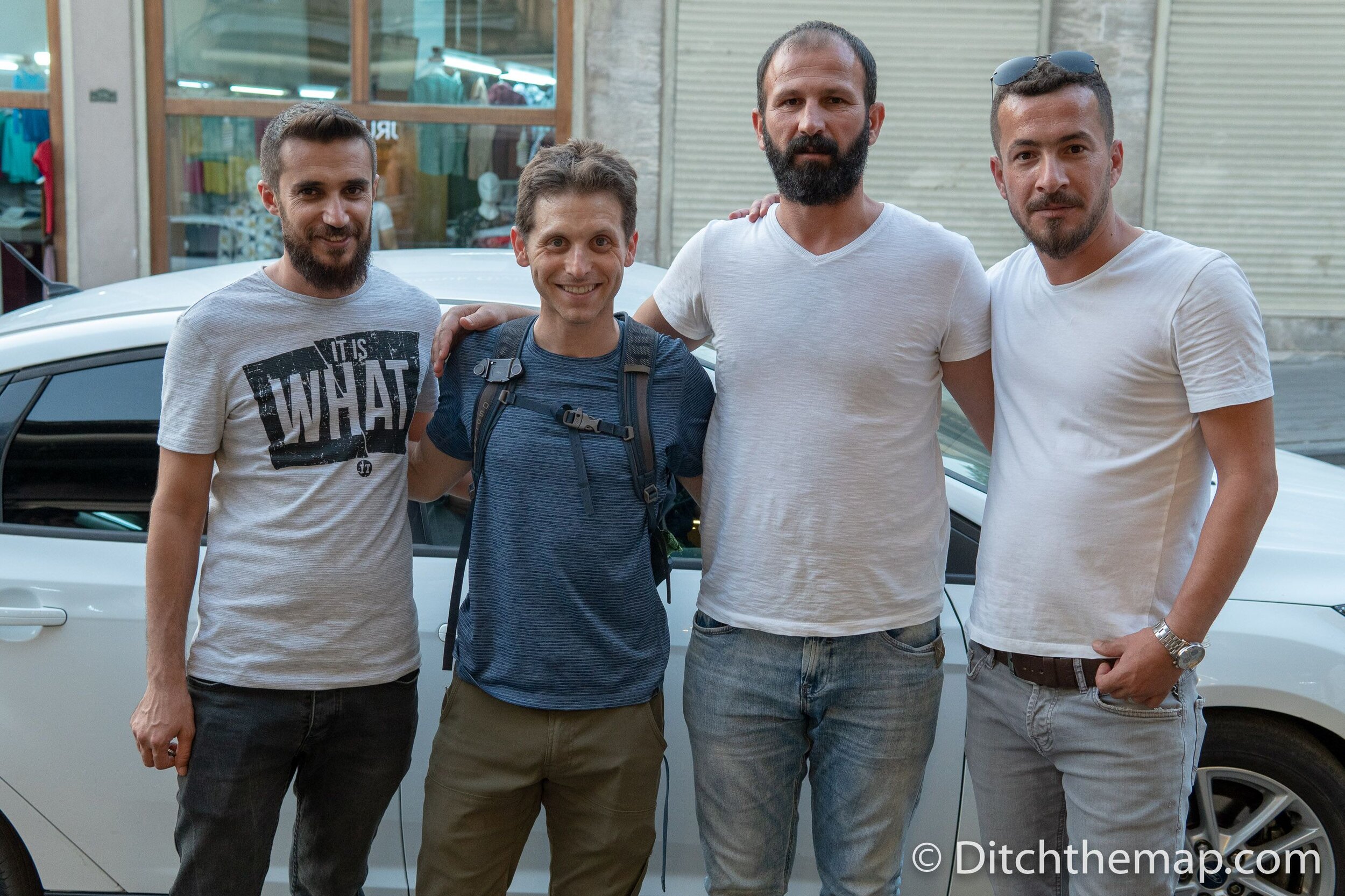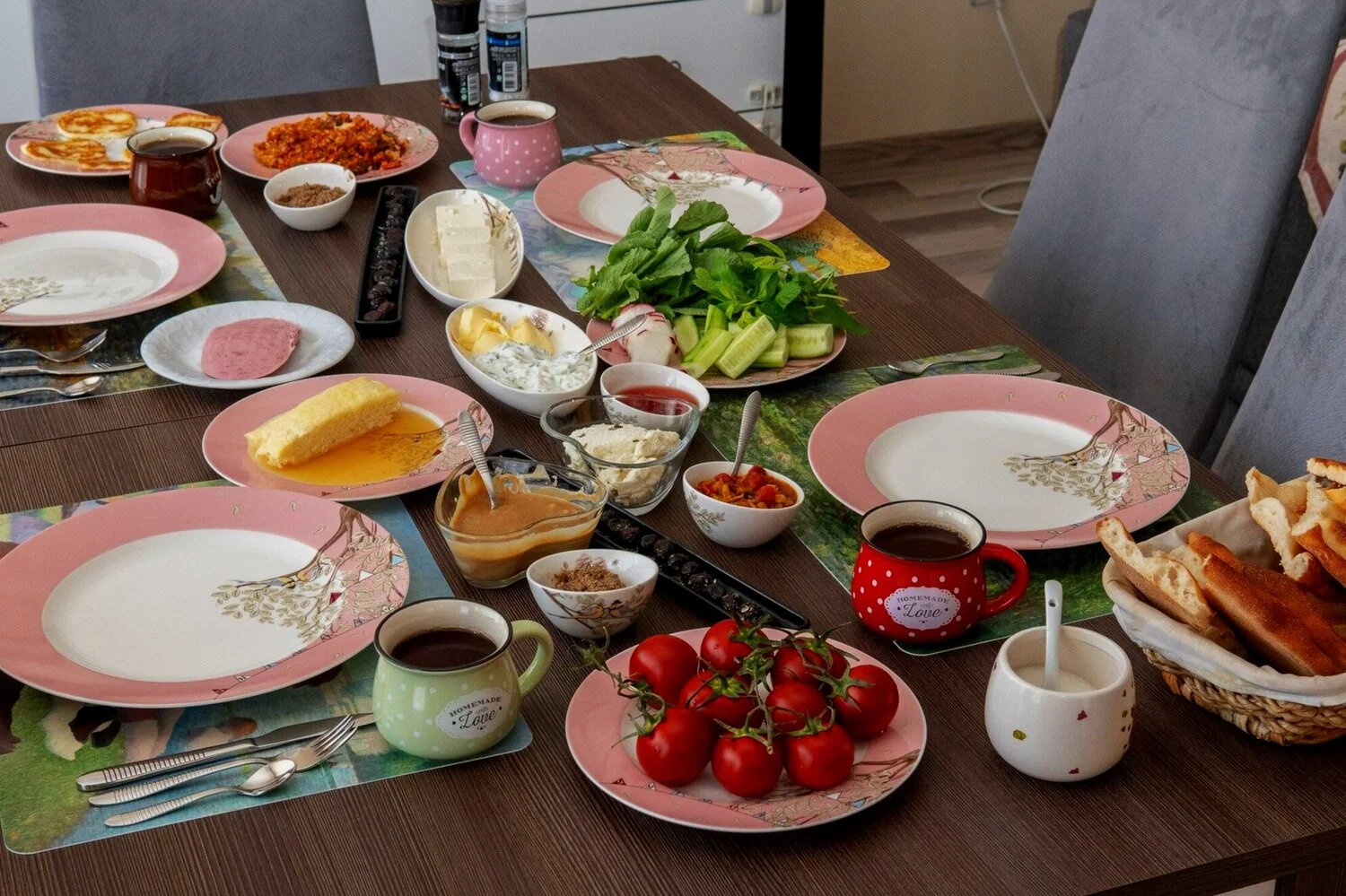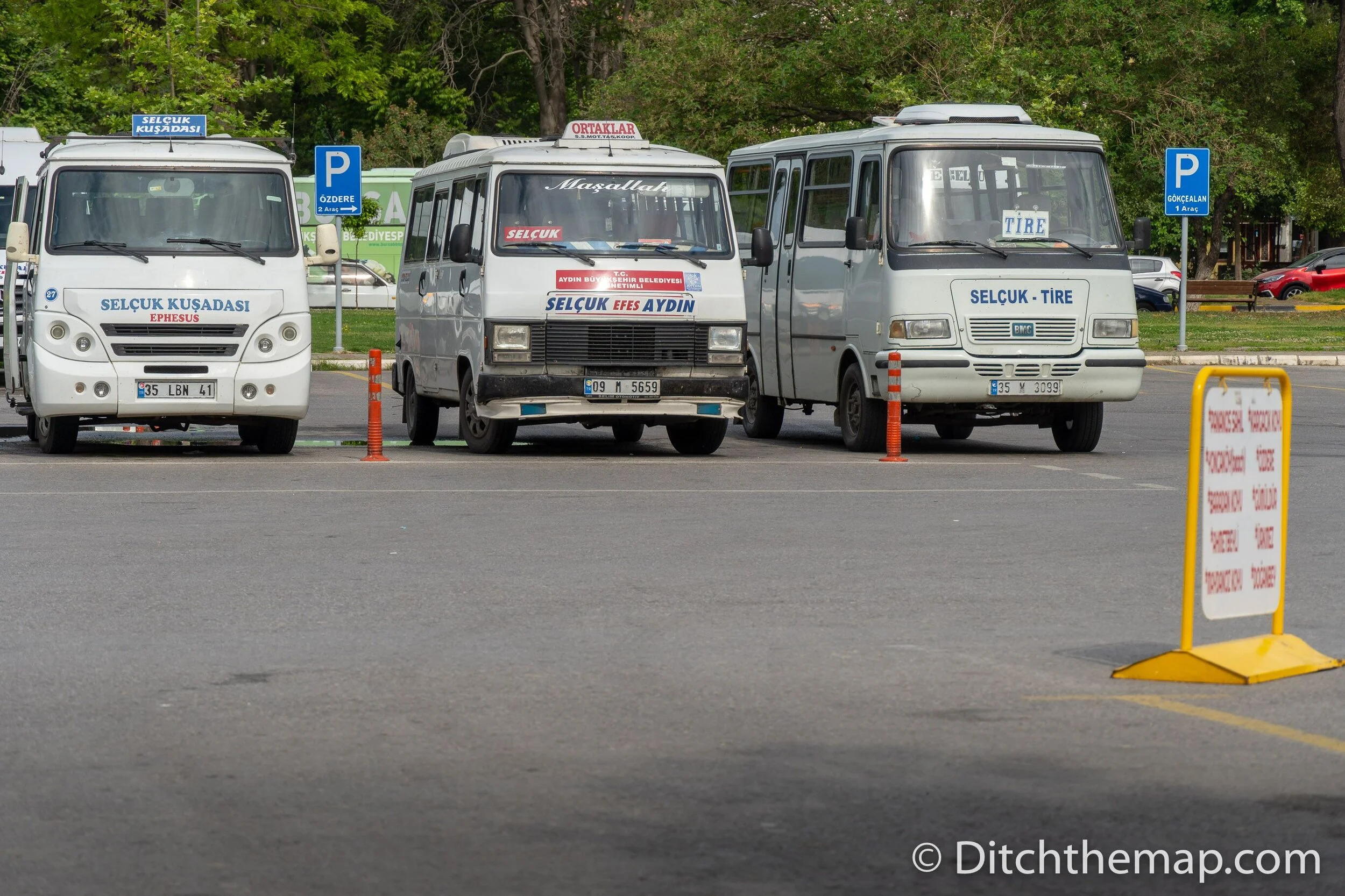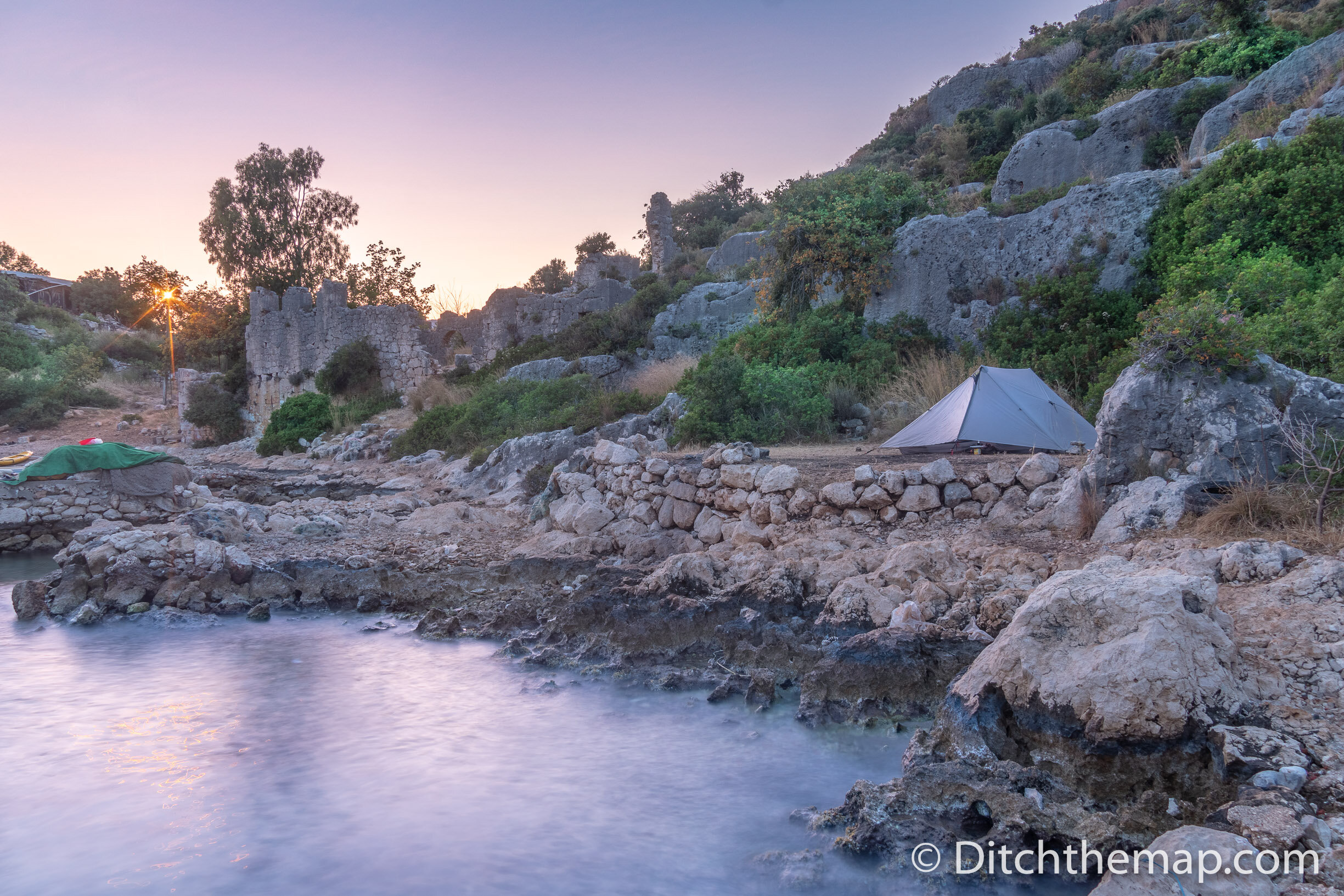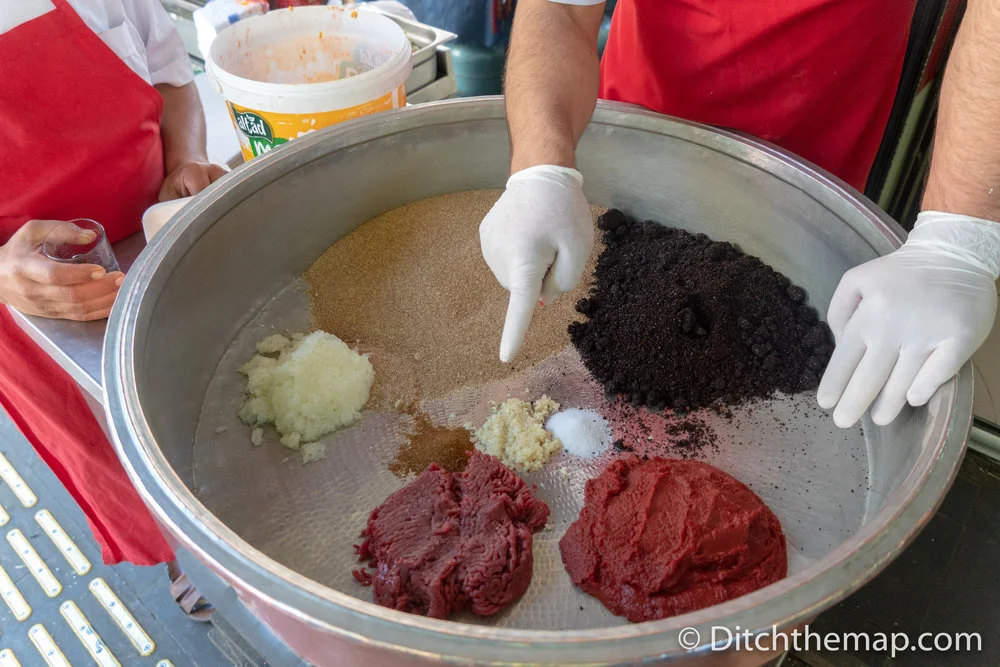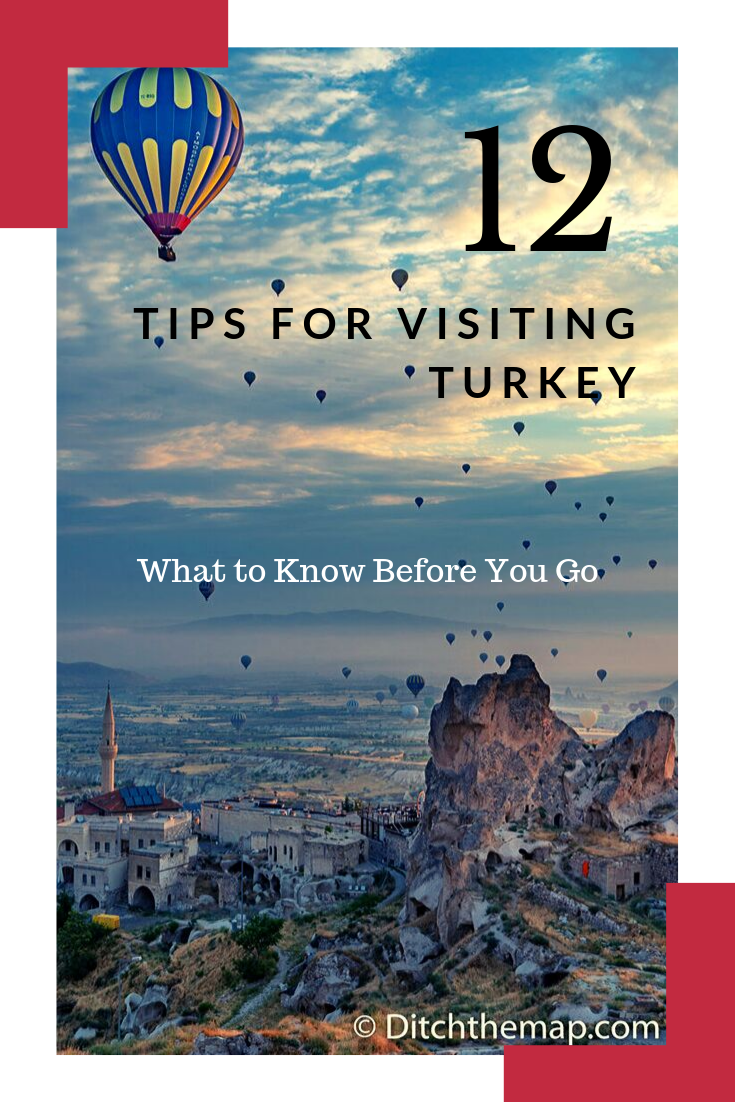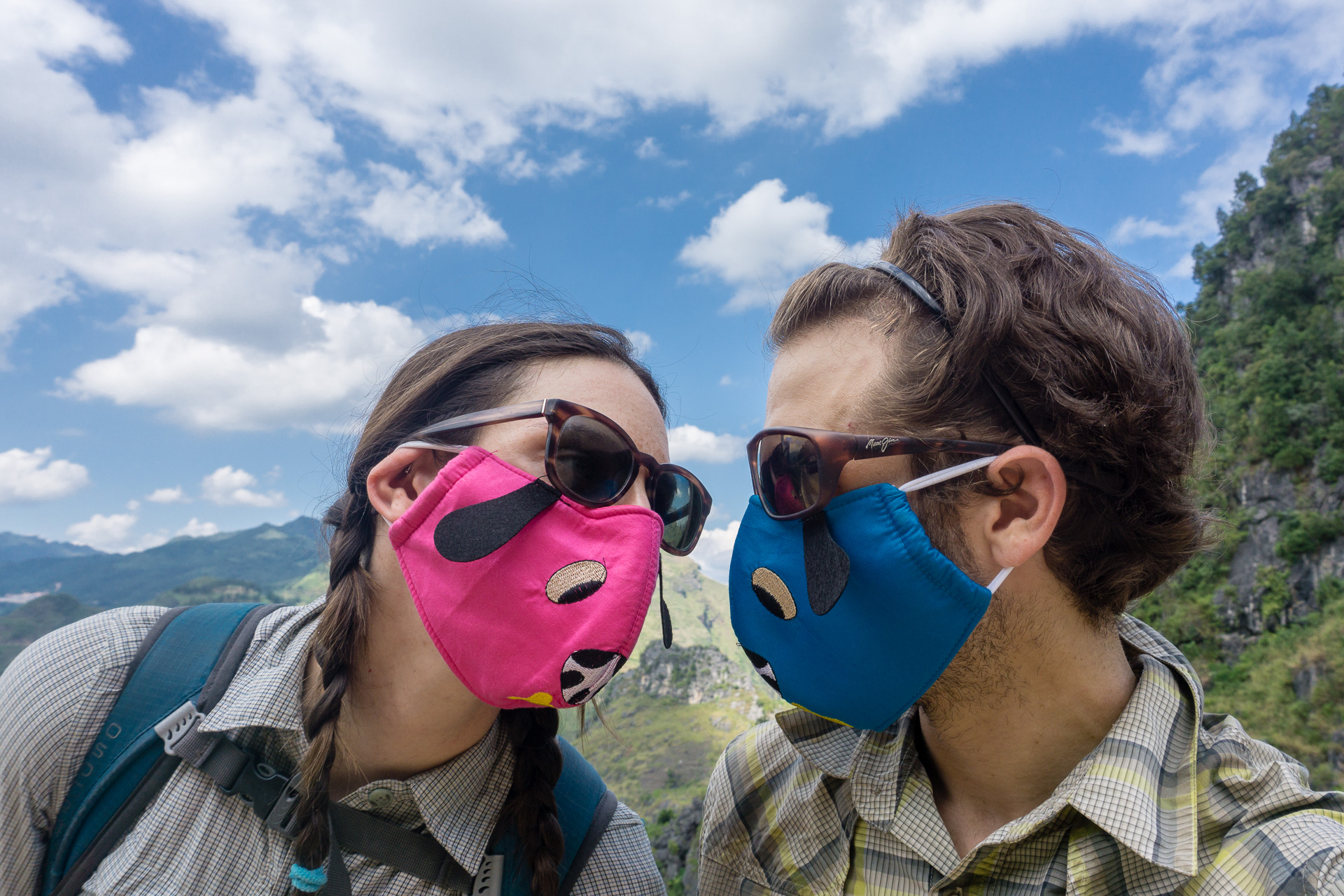Top 12 Tips for Traveling Turkey - What to Know Before You Go
/We came to Turkey with a loose itinerary and the expectation to spend about a month backpacking through different regions - so much for that idea. Turkey stole our hearts and we lost ourselves in the beauty of its nature, the generosity of its people, and the significance of its history. Not only did we use up the entirety of our 90-day visa, we accidentally exceeded it (fortunately no Midnight Express type prison experience for us, just a fine). Recommendations from locals and travelers alike took us to the western, southern, central and eastern regions of Turkey and we soaked up every moment of the journey. From feasting on the regional food, to hiking the Lycian Way, to renting an apartment on the Turquoise Coast, to exploring ancient Mesopotamian cities, to volunteering on a farm, Turkey hooked us. It’s a culturally, ethnically, religiously, and geographically diverse country with a history that’s so extensive it’s mind-boggling. Do yourself a favor and don’t make Istanbul your only stop in Turkey - there’s so much more to do and see. If you’re planning to visit Turkey read our top tips below to know what to expect and make the most of your trip.
Exploring the ancient Lycian ruins of Myra
Watching Balloons at sunrise in Cappadocia, Turkey
Sighting the ancient ruins of Patara on the southwestern coast of Turkey
A map of the destinations we visited in Turkey
Turkey’s Mediterranean coast
Tips for Traveling Turkey
1. Take your shoes off when entering a home. Make sure to be a respectful guest and keep your hosts’ house clean by removing your shoes. Typically, slippers are provided by the host for you to wear inside. Keep this shoe removal practice in mind as it’s likely that you’ll be invited into the homes of a few Turkish people. They are an unbelievably friendly lot. Taking your shoes off also applies when entering a mosque. And ladies, don’t forget to cover your head when entering a mosque. You’ll find that bringing a scarf along on your travels will prove quite handy.
Leather shoes for sale in Gaziantep, Turkey
Covering up while inside the Great Mosque of Diyarbakır, Turkey
2. Turkish hospitality isn’t just a saying. There’s a belief in Turkey that “guest is God,” and truly we have never felt quite as special or welcomed in any other country than we did in Turkey. We found the Turkish people’s generosity and kindness to know no bounds. When we asked for directions we were escorted to bus stops, hailed cabs, called cabs and on several occasions taken under the wing of exceptionally friendly Turkish people who accompanied us to different sites becoming our own tour guide of sorts. We were invited into the homes and shops of dozens of locals with offers of Turkish tea (çay) and food. In fact, we were offered so much food throughout our travels in Turkey that we each put on a few extra pounds! To courteously decline such offers, place a hand over your heart and say “thank you” or “teşekkür ederim,” in Turkish. I’d strongly advise against turning down that cup of çay though; sharing tea is a great way to learn about the local culture and make a new friend.
A cup of çay, or Turkish tea, is a symbol of hospitality
Friendly locals in Mardin, Turkey
3. Breakfast starts the day right. You haven’t had breakfast until you’ve had a Turkish breakfast. Turkish breakfast, called kahvalti, is a feast for the eyes as well as the stomach. Small platters of fresh food fill every inch of the table resulting in a tantalizingly colorful spread. Breakfast includes at least 2-3 types of cheeses, a variety of spreads (tahini mixed with grape or pomegranate molasses - the Turkish version of PB&J, honey, black olive spread, hazelnut spreads, butter, and fruit jams), spicy sausage, fried eggs or menemen (scrambled eggs with bell peppers, tomatoes and scallions), an assortment of olives, cucumbers, tomatoes, arugula, and all sorts of breads. Kahvalti is lingered over, sometimes for hours on the weekends, and enjoyed with a tulip shaped glass of black tea which, contrary to popular belief, is the hot beverage of choice for Turkish people, not Turkish coffee. If you’re a breakfast lover do not miss the eastern city of Van where breakfast is the number one attraction.
Turkish breakfast - a true feast!
Homemade breakfast from our couchsurfing hosts in Van, Turkey
4. Need to get somewhere? There’s a dolmuş for that. There may not be a direct bus to get you where you need to go but surely 2 or 3 consecutive minibus rides will get you there! The dolmuş is Turkey’s notorious and affordable transportation solution. Running short routes back and forth all day long, these minibuses are a reliable option for getting around. Dolmuş translates to “stuffed” and sometimes they are just that; completely jam-packed! They pick up from bus stations and virtually anywhere along the road where it’s safe enough to pull over. Look at the sign hanging in the front window to check the final destination and hop on. Riding the dolmuş is always an adventure.
Minibuses await at the bus station in Selcuk, Turkey
5. Don’t fear the squat toilet. It’s almost a guarantee that you’ll come across a squat toilet in your travels through Turkey. Science supports that squatting is better form for emptying the bowels, so why not give it a try? There’s a good chance, however, that the bathrooms will not have toilet paper. So bring your own toilet paper or use the water hose provided (the “bum gun”) to rinse yourself. Flush the toilet by filling up the small pitcher provided with water from the tap (located somewhere on the wall near the toilet) and pour the water into the toilet. Throw your toilet paper into the small trash bin in the stall, not into the toilet. Often times the plumbing isn’t equipped to handle paper.
A squat toilet in Adrasan, Turkey
6. Share a car, make a friend. Turkey is an extraordinarily hitch-hiking friendly country. We can attest to this fact firsthand. As an extension of the Turkish hospitality, the Turkish people are generally happy to help you out with a ride and you won’t wait long before a car stops. Do consider your safety, especially if you are traveling alone and/or are a female. Ladies, if you plan to hitchhike remember to dress modestly, lest your intentions be misinterpreted. Unfortunately, there is an unfounded misconception that western women are more willing to participate in casual sex.
Our workaway friends hitchhike in Dalyan, Turkey
7. It may sound disrespectful, but it’s not. Something that took a bit of getting used to was hearing the “tut, tut” sound which is produced by smacking the top teeth with the tongue. Initially this sound registered as quite rude to our foreign ears and we felt like we were being scolded. It turns out that this sound is regularly used in Turkey in place of saying “no.” So, when you hear this sound you need not be offended!
8. Take your tent with you. Wild camping is legal just about everywhere in Turkey. You don’t need to find a campground in order to enjoy Turkey’s picturesque scenery - just pick a spot with a view and pitch your tent. Make sure to “pack in and pack out” in order to preserve Turkey’s wilderness and lessen your impact on the environment. If you enjoy hiking and camping check out Turkey’s long distance hiking trail, the Lycian Way, which was named one of the top long distances hikes in the world.
Camping in a Tent along Turkey's Mediterranean Coast
9. The expression “you smoke like a Turk” holds true. Despite bans on smoking in many public places you’re sure to inhale more than your fair share of second hand smoke in Turkey. An image that quickly became familiar on our travels around Turkey is that of elder men clustered around tea house tables playing okey, drinking cay, and smoking like chimneys. Additionally, we had one particularly unfortunate experience while riding a regional bus where the bus driver and several passengers lit up during the ride making for a very smokey journey, sigh.
10. Kurdistan exists and it doesn’t. You wont find Turkish Kurdistan on the map but it does exist. In fact, Kurds make up about 20% of Turkey’s population. Turkey’s Kurds have a rich culture and equally rich cuisine. With roots as nomadic goat herders, the Kurdish people eat a lot of milk products. They certainly know how to whip up all sorts of tasty cheeses and yogurts! Turkey’s Kurdish population lives predominantly in the southeast region of the country. This area, called Northern Kurdistan, also extends into the neighboring countries of Iran, Iraq, and Syria where it is called Eastern, Southern, and Western Kurdistan. The history of Turkish Kurdistan is riddled with conflict due to the Kurd’s desire for self governance and/or political representation. Despite its turbulent past, we absolutely adored Kurdistan. The Kurdish people are unbelievably kind and welcoming - we were even invited to a Kurdish wedding! Something to note: while many Kurds in Turkey speak Turkish, their first language is Kurdish.
Greater Kurdistan is divided into four geographical regions Redcrow, Thoreau. “Shooting out of Love: A Case Study on Kurdish Guerrillas in the PKK (Kurdistan Workers' Party).” (2017).
Attending a Kurdish Wedding in Diyarbakir, Turkey
11. Don’t miss the south and southeast! The fertile crescent, the cradle of civilization, Mesopotamia - need I say more? The history in this region of Turkey is almost unfathomable. The southeast is home to impressive historical sights like Göbekli Tepe, a 12,000 year old temple and cuisine to die for. In fact, Gaziantep, a city in the southeast, is the birthplace of baklava. The best part about these destinations in the south and southeast is that they are currently less visited by foreign travelers and maintain their unique cultures and authenticity. The south and southeastern regions feel different than the rest of Turkey. In these regions you can observe Kurdish and Arabic influences and ancient religions like Assyrian Christians, whose followers speak a dialect descended from the language of Jesus. Visiting the south and southeast of Turkey will provide you with many fascinating places to explore and locals who’ll welcome you warmly. You won’t regret visiting!
Mardin, Turkey - a city located in Mesopotamia
Tasty varieties of baklava in Gaziantep, Turkey
12. Cig kofte is a reliable vegetarian option (except when it’s not!) We fell in love with these spicy, meat-free bulgur meatballs. Wrapped up “durum” style in a flat bread or served alongside lettuce, cig kofte is a delightful mouthful. Packed with fiber and spice, cig kofte is fast food item that hits the spot every time. They’re often served along side an assortment of goodies like pickles, peppers, lemon, cilantro, pomegranate molasses, spicy sauce, and bread. Cig kofte is an explosion of flavor for a price that will only set you back about a dollar. Historically cig kofte was made with raw meat, explaining the name “raw meatball,” but this practice was outlawed in order to prevent the spread of food born illness. However, the rare street vendor can still be found serving cig kofte with raw meat. We accidentally tried this raw meat version while in Diyarbakir and I hate to admit it, but it was delicious.
A platter of cig kofte in Cappadocia, Turkey
A pile of raw meat to be mixed into the cig kofte in Diyarbakir, Turkey
Don’t forget to Pin this page to save it for a later time.





